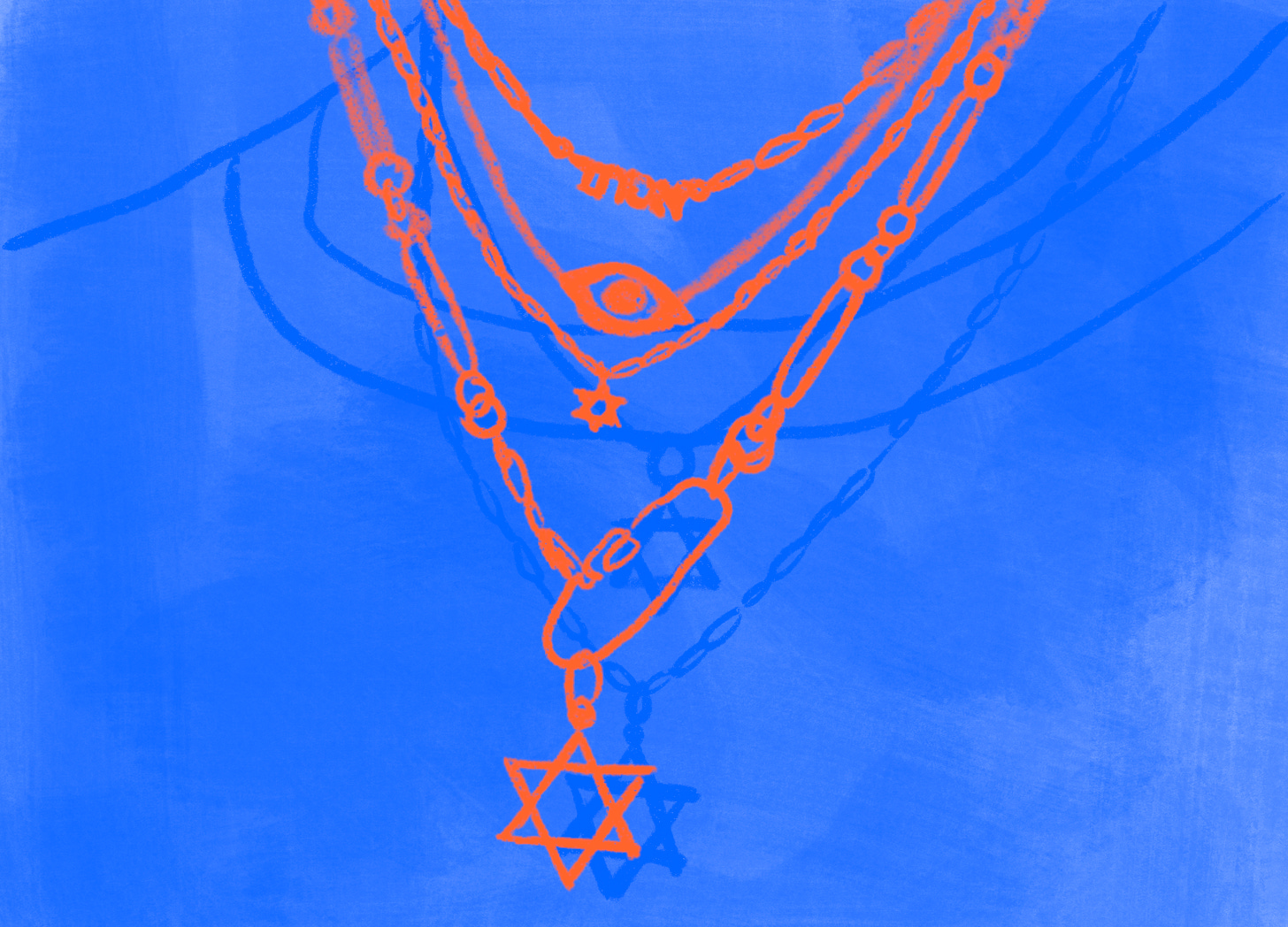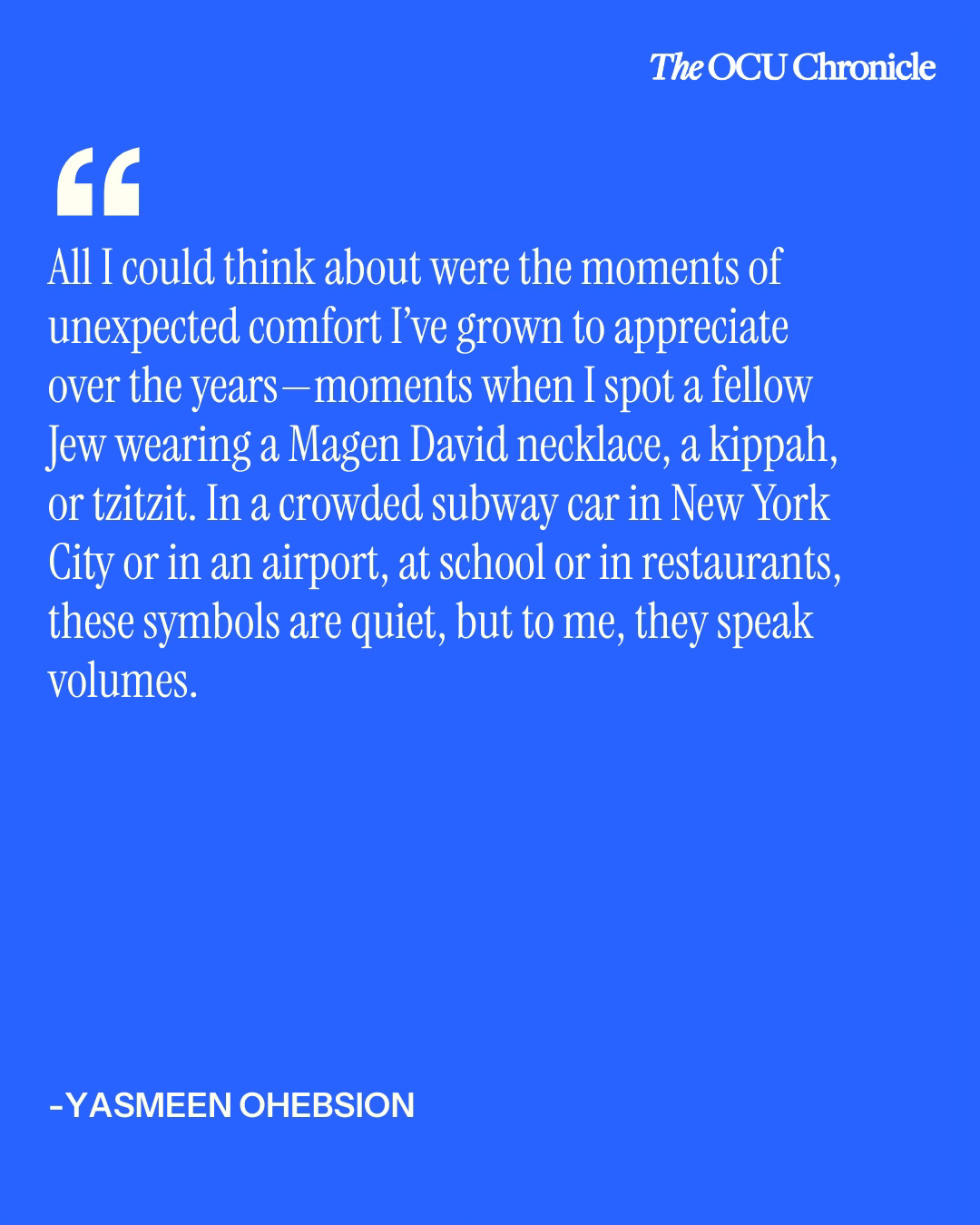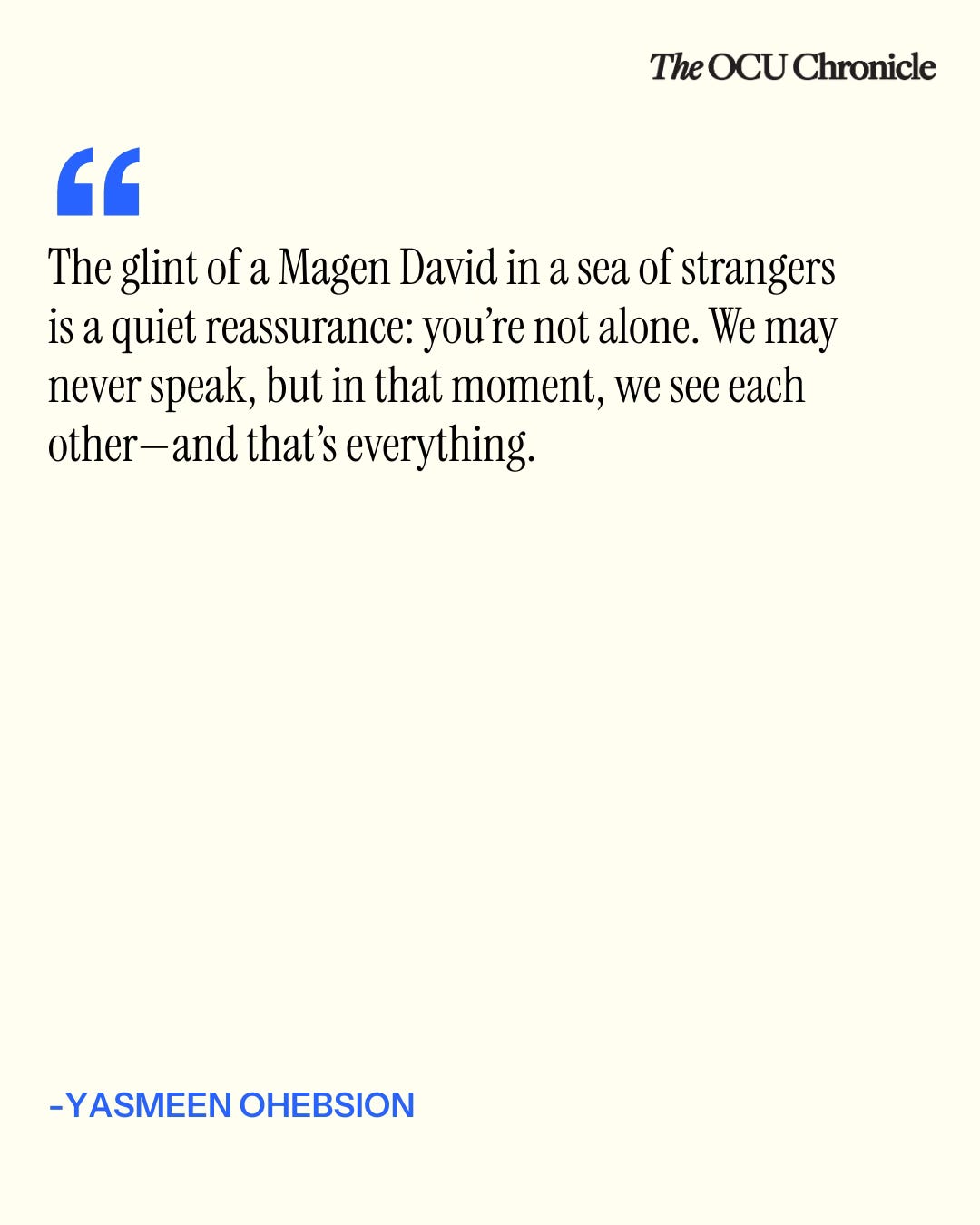You’re Never Alone When You Say You’re A Jew
Wearing her Magen David necklace, the Founder & CEO of Our Campus United finds unexpected—and unspoken—moments of kinship.
by Yasmeen Ohebsion
Someone once asked me what kind of room I would feel the most uncomfortable being in. Without hesitation, I said, “A room where I’m the only Jew.”
As soon as the words left my mouth, I paused. My mind started racing—not because I regretted what I said, but because I realized how deeply that instinct ran. All I could think about were the moments of unexpected comfort I’ve grown to appreciate over the years—moments when I spot a fellow Jew wearing a Magen David necklace, a kippah, or tzitzit.
In a crowded subway car in New York City or in an airport, at school or in restaurants, these symbols are quiet, but to me, they speak volumes.
I began paying more attention to this feeling. It isn’t just about the symbol—it’s about what it means in that moment. You are not alone. The glint of a Magen David in a sea of strangers often feels like a quiet reassurance. It doesn’t matter if we’ve never spoken before or if we’ll never speak again. That one small piece of jewelry creates an invisible thread of connection, safety, and shared understanding between us.
In the aftermath of October 7, this feeling has only intensified. Across the country, Jewish students have found themselves in increasingly hostile campus environments. And in response, students are reacting in different ways: some are leaning into their Jewish pride more visibly than ever—wearing Magen David necklaces, waving Israeli flags, joining student groups. Others are choosing to hide who they are, out of fear or exhaustion.
A recent study found that the number of Jewish students who say that they feel comfortable expressing their Jewish identity on campus dropped by nearly half after October 7. That statistic makes my heart ache—and makes those visible signs of pride feel even more important. You never know who might judge you, side-eye you, or even harass you. But you also never know who may feel the comfort they really needed that day, just by seeing you. You become a reminder that it’s possible to stand tall in your identity, even when the world tells you to shrink.
You become proof that it’s possible to show up as your full self. That even when it’s hard, it's still worth it. That we are not going anywhere, and that we, no matter what, will choose pride over fear.
Since October 7, something unexpected has happened. A community that sometimes felt fractured, divided by observance, background, or politics, has found powerful moments of unity. From a moment of horror came something powerful. Not only are we looking for each other again, we’re also finding each other again—on subways, in airports, in schools, and in restaurants.
For those of us who fear being the only Jew in the room, these quiet glimmers of recognition are everything. They remind us that we’re not alone and never really were. When I was little, my rabbi at Wilshire Boulevard Temple in Los Angeles, Rabbi Steve Leder, now a leader and teacher to so many, used to sing this song.
“Wherever you go, there’s always someone Jewish. You’re never alone when you say you’re a Jew. And when you're not home and you’re somewhere kind of newish, the odds are don’t look far—’cause they’re Jewish, too.”
I didn’t fully understand it then, but I do now. In a world that often makes us feel small, scared, or out of place, the Magen David—worn around your neck or seen on someone else’s—becomes a quiet promise: you’re never alone when you say you’re a Jew.
The views, thoughts, and opinions expressed herein are solely those of the author and do not necessarily reflect the official policy, position, thoughts, or opinions of Our CampUs United (“OCU”), its affiliates, or any other individuals or entities associated with OCU.







